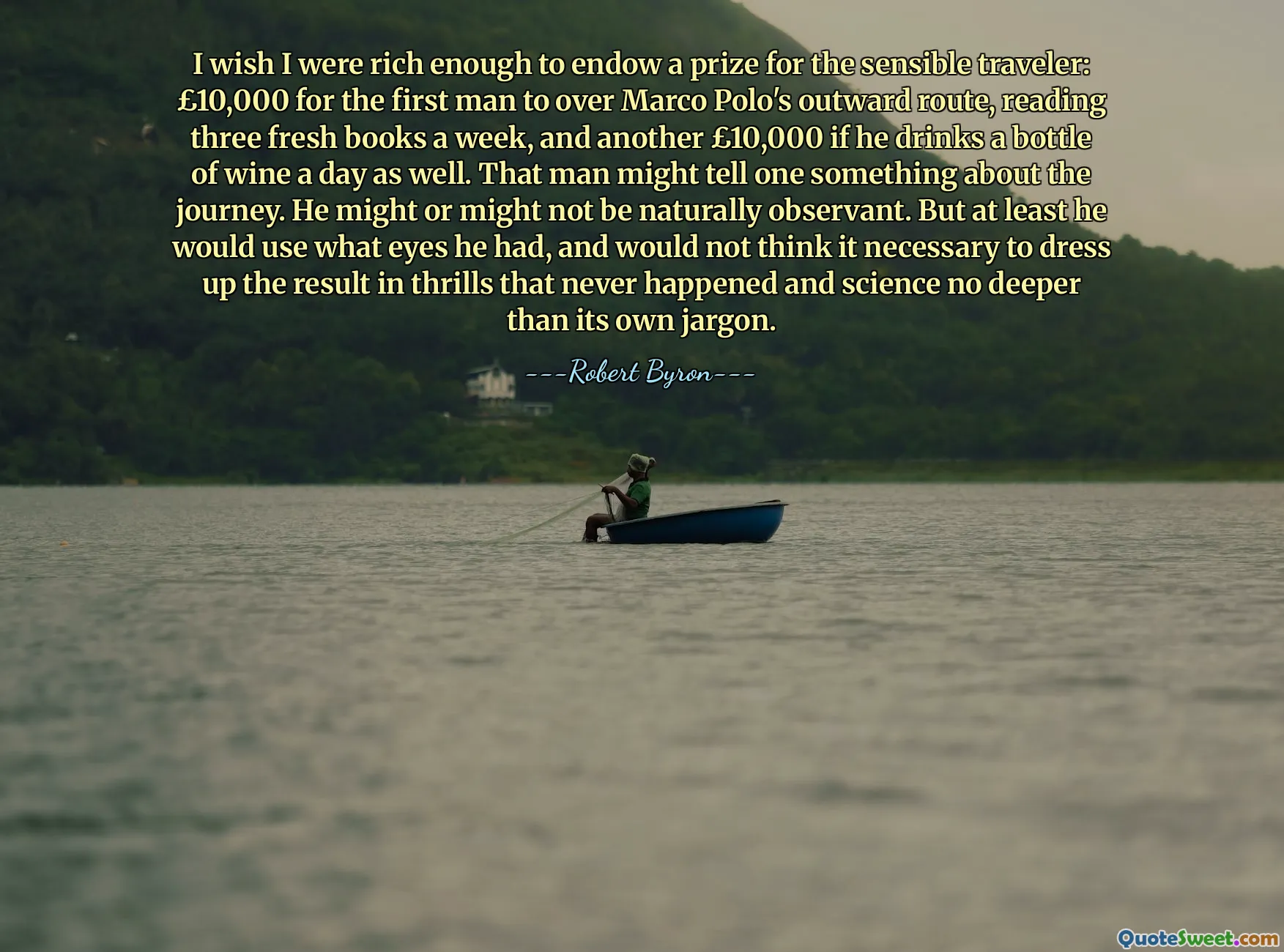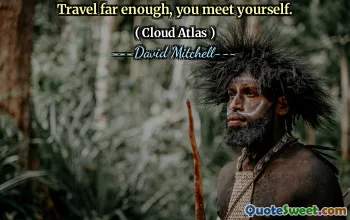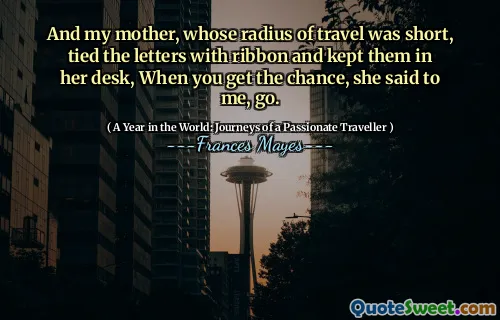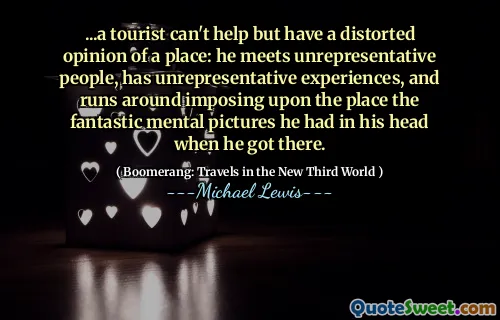
I wish I were rich enough to endow a prize for the sensible traveler: £10,000 for the first man to over Marco Polo's outward route, reading three fresh books a week, and another £10,000 if he drinks a bottle of wine a day as well. That man might tell one something about the journey. He might or might not be naturally observant. But at least he would use what eyes he had, and would not think it necessary to dress up the result in thrills that never happened and science no deeper than its own jargon.
This quote highlights the admirable qualities of genuine curiosity and attentive observation in travel. It critiques the tendency of some travelers and writers to embellish or sensationalize their experiences, layering them with exaggerated thrills or superficial scientific jargon that obscure the true essence of a journey. Byron envisions a traveler who approaches exploration with earnestness—a person who prioritizes reading, savoring local culture (symbolized by drinking wine), and using honest eyes to observe the world rather than relying on embellished stories or pretentious scientific explanations. This emphasis on sincere engagement over superficial spectacle underscores the importance of authenticity in understanding new places. In a broader sense, it challenges modern travelers and writers to eschew sensationalism and instead focus on perceived authenticity, curiosity, and appreciation of the ordinary details that truly define a place and its people. Byron's hypothetical prize underscores a desire for travelers who value depth over drama, substance over spectacle—a call for genuine exploration rooted in attentive observation and honest storytelling. Such values remind us that meaningful travel requires more than just visits or superficial impressions; it asks for thoughtful reflection, genuine curiosity, and a humble recognition of the richness that lies in paying close attention to the world around us.









